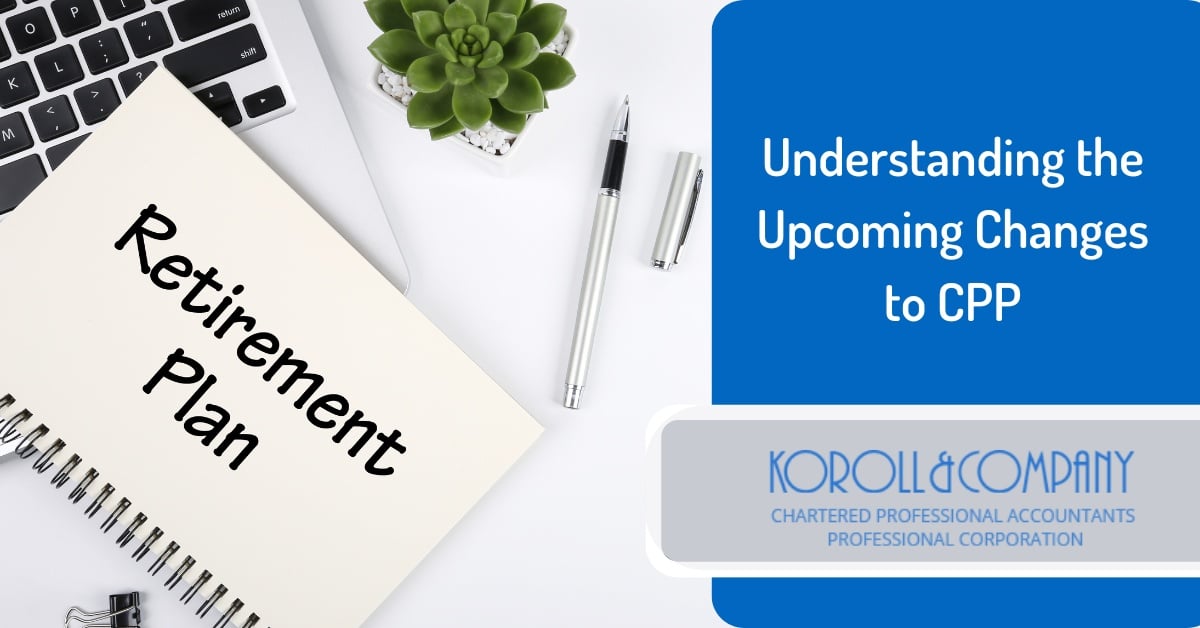 In Canada, we have two public retirement income programs – Old Age Security (OAS) and the Canada Pension Plan (CPP). While you’re still allowed to accumulate your own savings in registered pension plans or registered retirement savings plans, these two programs ensure that all Canadians get a basic level of income when they retire.
In Canada, we have two public retirement income programs – Old Age Security (OAS) and the Canada Pension Plan (CPP). While you’re still allowed to accumulate your own savings in registered pension plans or registered retirement savings plans, these two programs ensure that all Canadians get a basic level of income when they retire.
But OAS and CPP are two very different programs. They are funded in different ways, have different eligibility requirements, and provide different benefit amounts.
To help make sure you understand these programs, let’s look at them in more detail.
Old Age Security (OAS)
OAS is like a little boost of money you get each month when you turn 65, but there are some rules. Right now, the most you can get is $691 per month (or $760.10 if you're 75 or older) but every quarter the benefit is adjusted for inflation.
To receive OAS, you need to have lived in Canada for at least 40 years since turning 18. If you've been here for less time, your OAS money will be less. In addition, if you make more than about $86,000 a year, your OAS benefit will also be reduced.
Canada Pension Plan (CPP)
CPP is funded by you and your employer if you work for someone else. If you’re self-employed, you must pay both your portion and the employer portion.
When you earn money, a percentage of it goes into your CPP fund. The more you make, the more that goes in. Currently, you and your employer do not pay CPP on the first $3,500 you make in a year. In addition, you stop making contributions once you reach the Year’s Maximum Pensionable Earnings (YMPE) amount each year, which for 2023 is $66,600.
You can start getting CPP money as early as 60 or as late as 70. The amount you get depends on how much money you put in over your working life. Right now, the most you can get each month is $1306.57. Once you begin receiving CPP, you will continue to get it for the rest of your life and it will never be reduced.
Changes to CPP Over the Years
A while back, the government noticed that not everyone was saving enough for retirement. In fact, in 2016, they found that 24% of families nearing retirement age didn't have enough money saved up.
As a result, they decided to boost up the CPP so Canadians would have more money when they retire.
Here's how they did it …
In 2019, they increased everyone’s contribution amount from 4.95% to 5.1% of their earnings. They continued to bump it up each year from that point on.
Upcoming Changes To CPP
Now in 2023, employees and employers each contribute 5.95% for earnings over $3,500 up to a maximum of $66,600.
On January 1, 2024 another change to the CPP program will take effect. If you earn more than $66,600, you'll have to chip in extra. This means, there will be two levels of CPP contributions:
Level 1:
If you earn less than $66,600, you keep paying 5.95% on the amount you make over $3,500. No big changes here.
Level 2:
If you make more than $66,600, you'll pay an extra 4% on the extra cash you earn, up to a certain point called the Year’s Additional Maximum Pensionable Earnings (YAMPE).
Let's break it down with an example:
Sarah is going to make $90,000 in 2024, and the YMPE is $67,700.
Sarah pays 5.95% on $64,200 (that's $67,700 minus $3,500), which is $3,819.90. Her employer chips in the same.
Since Sarah earns more than the YMPE, she also has to pay 4% on any income over $67,700 up to the YAMPE. Let’s assume the YAMPE is $72,400. That means Sarah and her employer have to pay an additional 4% on $4,700 (that's $72,400 minus $67,700), which is $188 each.
In total, Sarah's CPP contributions for 2024 are $4,007.90.
If you would like to know more about these changes and how they will affect you and your business, please contact us today.






